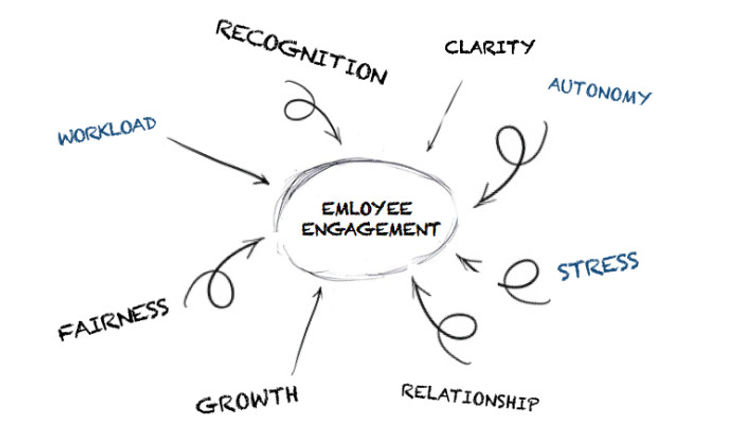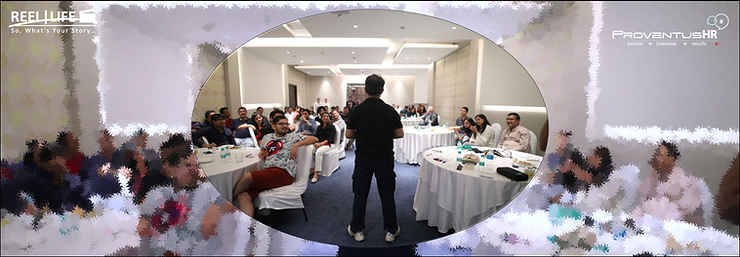Do you look forward to your performance appraisal discussion or is it an event you dread?
Do you have fond memories of previous performance appraisals or are they horror stories?
As a manager, do you find this periodic discussion with members of your team, an opportunity to really help them to enhance their performance or is it simply a ‘tick box’ management requirement?
At least twice a year, you will have a formal performance appraisal discussion with your manager. This is a periodic review of how you are progressing against your agreed objectives and forms part of your company’s performance management process. So what is its purpose?
We all perform to the best of our ability when we:
- Know exactly what is expected of us
- Know that we are valued
- Are challenged and supported
- Know where we are going
- And receive regular feedback on our progress.
You and your manager will communicate regularly to achieve the above and so performance management is an integrated and continuous process. It is essential that your efforts are directed towards the success of the whole team and the company, in order to achieve company objectives. Everyone must pull in the same direction for an organization to be successful.
Your performance appraisal discussion is a periodic opportunity to clarify all aspects of your role. To discuss with your manager, what has gone well during the previous period and what could have been done differently, maybe better. You will review your progress against your agreed objectives and decide upon your objectives for the coming period. Your manager will offer you specific feedback, both constructive and developmental and you will record and celebrate your achievements.
Your performance appraisal is also an opportunity to identify what knowledge and skills you need to acquire in order to achieve your future objectives. What must you learn and what support do you need from your company, your colleagues and your manager? You will agree upon an action plan to support this learning back in the field and you will agree a means of monitoring your progress.
So how can we get the best out of a performance appraisal interview? Here are some tips for both parties to consider:
Appraisee:
· Prepare fully for your appraisal.
· Ensure that you understand the purpose and format of your performance appraisal discussion.
1. Think about your job:
- What is your main role?
- What would happen to your team or company if you did not do your job well?
- What knowledge, skills and attitude do you need to be successful?
- How do you feel you rate against these requirements?
- How has your job changed recently and how might it continue to change in the future?
2. Think about your performance:
What have you done well during this review period? Be specific and collect examples.
Quantify your achievements if possible and consider how they have contributed to the organisation’s success.
- What has gone less well? What do you feel were the reasons for this?
- What have you learned as a result of these difficulties?
- What have you enjoyed during this period and what have you not enjoyed?
- What has helped and what has hindered you?
- What can you do better during the next period?
- Consider questions that your manager might ask you and prepare answers as far as possible.
- Collect evidence of all of your achievements during the review period.
3. Think about your future:
- What would you like to be doing in the future?
- What experience, knowledge, skills and attitude do you need to develop to enable you to achieve your aspirations?
- What are you going to work on during the next period, to improve yourself within these areas?
- What would help you to do your current job better?
- What support do you need from your manager, your colleagues and your company to improve your current job performance?
- What additional responsibilities would you like to assume, to help you to develop yourself?
- Appreciate the needs of your manager – what is he/she measured against?

Do most of the talking – it is your appraisal
Manager:
- Undergo performance appraisal training yourself to ensure that you are fully prepared and able to derive the maximum benefit from this opportunity.
- Give your appraisee plenty of warning of the date of the appraisal.
- Prepare fully for the meeting. Collect all of the information you require.
- Prepare specifically for any ‘tricky bits’ by having specific examples of behaviours and appropriate data to hand.
- Identify and book a suitable venue and allocate sufficient time for the discussion. Ensure you will not be interrupted.
- Adopt a structured approach to the interview:
Structure of Appraisal Discussion
Introduction
- Start on time!
- Open the meeting and establish rapport.
- Explain the purpose of the meeting and the desired outcome.
- Explain the process and timings and check these with the individual. Turn off mobile phones!
- Explain and try to understand the benefits of the appraisal from the appraisee’s perspective- be prepared to answer the question What’s In It For Me (WIIFM)
Discussion
- Invite the individual to review their achievements during the specified period against their agreed objectives.
- Offer your own observations and support these with specific examples.
- Keep the discussion objective and focused, offering honest and factual feedback where appropriate.
- Ensure that your feedback is balanced, focusing on the individual’s strengths as well as development areas.
- Avoid surprises – feedback should have been offered at the time and not saved up until the performance appraisal.
- Focus on solutions rather than defending positions. Look to the future rather than dwell on the past.
- Direct the discussion through questioning to encourage the individual to do most of the talking. Listen actively to their responses instead of thinking of your next question.
Future requirements
- Agree SMART objectives for the next period.
- Discuss the individual’s personal development needs to support the achievement of these objectives.
- Discuss the support they would like from you.
Action Plans
- Make the objectives you agree very specific and time bound.
- Agree action plans to support the identified learning opportunities.
- Ensure that the individual owns the outcomes of the discussion and is committed to implement these agreed actions.
- Agree review dates.
- Summarise the meeting and conclude.
- Write up the appraisal immediately.
The performance appraisal discussion therefore offers enormous benefits to everyone involved. Whether you are the appraiser or appraisee, prepare fully for the meeting, know exactly what you want to achieve as a result of this discussion and integrate it into your continual performance management process. Avoid surprises by giving (and receiving) regular feedback and look forward to an opportunity to openly review successes and learn from experiences.
Is the performance appraisal discussion a friend or a foe? It’s up to you!













